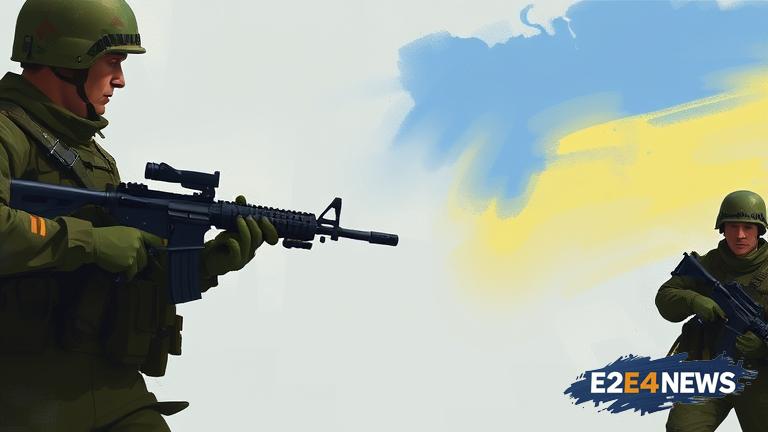The ongoing war between Russia and Ukraine has taken a significant turn, with Russian President Vladimir Putin seeking to augment his military capabilities by recruiting foreign mercenaries. This strategic move is aimed at offsetting the heavy losses suffered by the Russian army since the conflict began. The involvement of foreign mercenaries has raised eyebrows, with many questioning the implications of such a decision on the global stage. The Russian army has been struggling to make significant gains in Ukraine, prompting Putin to explore alternative means of strengthening his military presence. By enlisting the help of foreign mercenaries, Putin hopes to inject fresh momentum into the Russian war effort. However, this approach also carries significant risks, including the potential for further escalation and destabilization of the region. The use of foreign mercenaries has been a subject of controversy, with some arguing that it undermines the legitimacy of the Russian military campaign. Despite these concerns, Putin appears determined to press on with his strategy, driven by a desire to assert Russian influence in the region. The conflict in Ukraine has already resulted in significant human suffering, with thousands of civilians caught in the crossfire. The introduction of foreign mercenaries is likely to exacerbate the situation, leading to further bloodshed and displacement. The international community has been watching the situation with growing unease, with many calling for a peaceful resolution to the conflict. The United States and European Union have imposed economic sanctions on Russia, in an effort to pressure Putin into abandoning his military ambitions. However, the Russian leader remains resolute, convinced that his actions are necessary to protect Russian interests. The recruitment of foreign mercenaries is a complex issue, with many factors at play. Some of these fighters are motivated by financial gain, while others are driven by ideological convictions. The use of foreign mercenaries also raises questions about the role of private military companies, which have been accused of operating with impunity in conflict zones. As the situation in Ukraine continues to deteriorate, the international community is faced with a daunting challenge. The need for a peaceful resolution is becoming increasingly urgent, as the conflict threatens to spill over into other parts of Europe. The involvement of foreign mercenaries has added a new layer of complexity to the conflict, making it even more difficult to achieve a lasting peace. Despite these challenges, diplomats and leaders must continue to work towards a negotiated settlement, one that addresses the concerns of all parties involved. The alternative is a prolonged and bloody conflict, with devastating consequences for the people of Ukraine and the wider region. The Russian military strategy is likely to remain a subject of intense debate, with many questioning the wisdom of relying on foreign mercenaries. As the conflict rages on, it is clear that a new approach is needed, one that prioritizes diplomacy and dialogue over military might. The international community must come together to find a solution, one that brings an end to the bloodshed and suffering in Ukraine. The use of foreign mercenaries is a symptom of a larger problem, one that requires a comprehensive and sustained response. The world is watching, and it is time for leaders to take action, to find a way out of this crisis and towards a more peaceful and stable future. The fate of Ukraine and the wider region hangs in the balance, and it is up to the international community to ensure that the right course is taken. The conflict in Ukraine is a stark reminder of the dangers of unchecked military ambition, and the need for diplomacy and cooperation in resolving international disputes. As the situation continues to unfold, it is clear that a new era of diplomacy is needed, one that prioritizes the needs and concerns of all parties involved. The Russian military strategy may have shifted, but the fundamental principles of diplomacy and international relations remain the same. It is time for leaders to come together, to find a way out of this crisis and towards a more peaceful and stable future.





